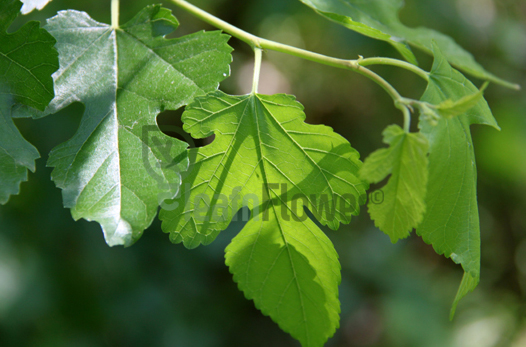Description
Details
Mulberry, a plant that grows in China, Korea and Japan, has been used in traditional Chinese medicine, in particular as an herbal tea. Mulberry leaf tea's health benefits are attributed to its naturally occurring compound, 1-deoxynojirimycin, or DNJ. DNJ is responsible for mulberry's antidiabetic effects, which have been studied extensively. Mulberry leaf tea also has powerful antioxidant properties and has been found to lower cholesterol and triglycerides and reduce inflammation.

Contains Minerals and Antioxidants
According to an article published in the "International Journal of Food Sciences and Nutrition" in 2006, mulberry leaves contain calcium, iron and zinc. Mulberry also contains the antioxidants ascorbic acid and beta carotene. Antioxidants inhibit cellular damage caused by free radicals, which get created during food digestion and smoke and radiation exposure. Regularly consuming foods and drinks rich in beta carotene may reduce your risk of cancer, according to PubMed Health.
Lowers Blood Glucose Levels
Type 2 diabetes is characterized by increased blood glucose levels. According to a study published in "The American Journal of Chinese Medicine" in 2012, mulberry lowers blood glucose due to its gallic acid content. In a study published in "Diabetes Care" in 2007, this effect was shown in Type 2 diabetes patients. In the study, everyone in a diabetes group and a healthy control group received a sucrose drink, but some also got mulberry extract, while the others got a placebo. Blood glucose was tested beforehand and two, three and four hours after sucrose consumption. The results showed that taking mulberry significantly curbed glucose spikes in the first two hours after consumption. The scientists concluded that mulberry could be useful both in the treatment of diabetes and in its prevention.
Reduces Bad Cholesterol
In a study published in 2013 in "BioMed Research International," triglyceride and LDL cholesterol levels were lowered significantly in patients given 280 grams of mulberry leaf powder three times daily for three months. A study published in 2010 in the "Journal of Clinical Biochemistry and Nutrition" found similar results after giving participants 12 milligrams of mulberry leaf extract three times daily for three months. These studies suggest that regular heavy doses of this herb may be required to see significant results in lowering cholesterol and triglycerides. However, sipping some mulberry leaf tea regularly may help prevent high cholesterol.
Has Anti-Inflammatory Effects
According to a study published in 2013 in the "Journal of Functional Foods," mulberry leaf has been traditionally used to treat inflammation caused by chronic diseases, and the results of the study verify its anti-inflammatory effects. In vitro, scientists found mulberry leaf inhibits inflammatory agents in the body, cutting off the body's inflammatory response. This effect was shown in rats in a study published in 2010 in "Phytotherapy Research." Rats with induced paw edema were introduced to mulberry, which inhibited the formation of inflamed paw tissue. These studies suggest mulberry leaf tea could be used to help ease pain by reducing inflammation.
Additional
Additional
| Health Benefits | alcoholic hepatitis, blood circulation, blood purification, blood sugar controller, constipation, diabetes, gout, hardening of the arteries, immune, improve diabetes symptoms |
|---|---|
| Directions | Shake/Blend of the powder with water. You may also use for baking or hot tea. |
| Product Package | Powder, Pouch |
| Good herbal formulation | Jujube, Rhizome of Atractylodes lancea, Longan Fruit |
| Storage Temperature | room temperature |
| Country of origin | Korea |
Reviews
Health
How To
How to eat Healthy Natural Powder :
Pour cold or warm water into a cup or bowl (200-250ml), take appropriate amount of healthy natural powder (2-3spoons) and stir well.
You may add honey, sugar, or salt. You could pour milk or soy mailk.
Notice :
Because of grain characteristics, opened product can be contaminated with foreign substances,
molds and others by air contact and worms can be found so please eat as soon as possible and seal the package tightly in case of refrigerator.
Not recommended for pregnant women. / Containing beans
DISCLAIMER
Some individuals may have adverse reactions to certain plants, herbs, and other natural products.
On any issue where no specific advice is given to consumers please follow this general advice; if you are currently taking the product;
you are advised to discontinue use and consult your pharmacist or herbal medical doctor.
When speaking to your doctor or pharmacist you may find it is helpful to take a copy of this MHRA advice about the product with you.
You should continue to take any medication prescribed by your doctor.
FAQ
Frequently Asked Questions
A: Generally you boil 20g of tea/herb with 2L. of water. The ratio does not matter. However, it is recommended that you control the
saturation of the tea (how strong it is) depending on your personal
preference and body condition.
A: It depends on the tea/herb.
For leaves: boil for 15~20 min.
For hard fruits, roots, and stems: If you soak the tea/herb in water
for 1~2 hours before boiling, you can save time in boiling, and also
get a deeper flavor than without soaking.
A: Currently, what is listed on the site is what we mostly deal with in
retail stores. However, if there is a certain tea/herb that you wish to
get, you can send an email to info@leafnflower.com. or 844-344-0622.
Then, we may offer a price for obtaining the tea/herb, answer questions, and even offer purchase.
A: Yes, you can combine 5~10g of teas/herbs that you already have with Leafnflower.com's teas/herbs.
Although brewing one tea/herb is still good, combining 2~3 teas/herbs helps bring out
the remedial effects of the tea/herbs better than brewing just one tea/herb. However, most tea/herbs contain natural toxins,
and it is recommended that you boil 1~2 pieces of liquorice root along with the tea/herb to remove the toxin.

